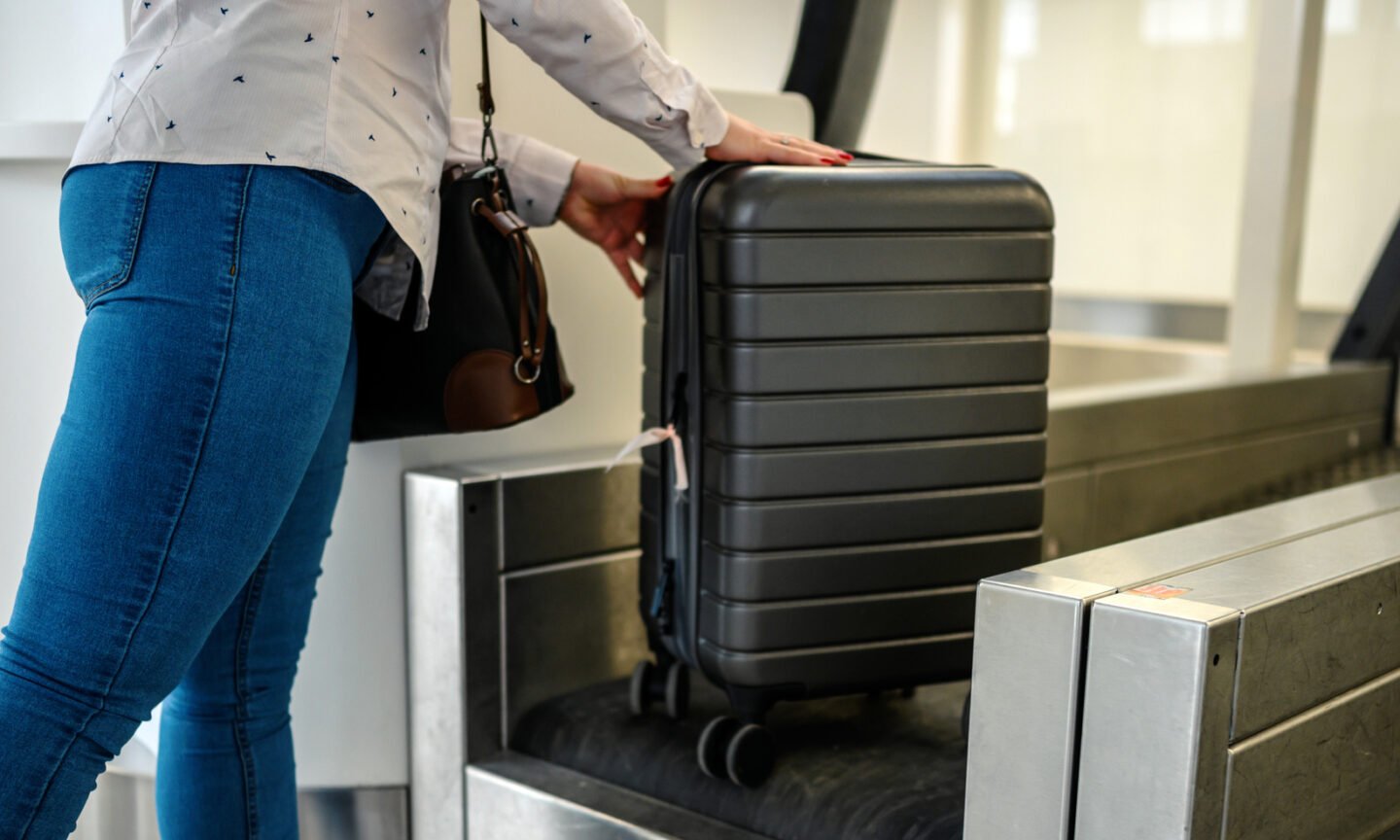If you’re flying in a regular seat on JetBlue Airways, your checked bags must weigh less than 50 pounds. If they weigh more, you’ll pay an additional $150 per bag.
Each flight reservation includes the ability to check two bags, usually for a fee, starting at $35 for the first bag for domestic flights and $60 for transatlantic flights.
People flying in JetBlue Mint, the airline’s version of premium class on transatlantic and some coast-to-coast flights, can check bags up to 70 pounds with no additional baggage fees.
You can bring one carry-on and one personal item with you on the flight. There are no weight limits on your carry-on bag, but make sure you can lift it into an overhead bin.
-
Checked bags cannot be bigger than 62 inches in overall dimensions (length plus width plus height).
-
A bag for the overhead bin can be no bigger than 22 inches in length, 14 inches in width and 9 inches in height, including handles and wheels.
-
Items going under the seat can be no bigger than 17 inches in length, 13 inches in width and 8 inches in height.
Oversized and overweight items
If the item you’re checking exceeds JetBlue’s general size and weight limits, you might have to pay extra fees.
The JetBlue baggage policy considers a bag that is 63 to 80 inches, including wheels and handles, to be oversized. The airline will not accept any suitcase bigger than 80 inches. Each oversized bag costs $150.
JetBlue charges an additional $150 for each overweight checked bag that’s 51 to 99 pounds. It does not accept bags heavier than that.
If your bag is oversized and overweight, you pay both fees. That means you would pay $300 per bag!
Checking sports gear on JetBlue
You can check sports gear — such as skis and golf clubs — with JetBlue, but you might have to pay extra.
JetBlue says you can bring items like a bike, skis, a golf bag or fishing rods as part of your two allowed checked bags.
The size requirements for suitcases do not apply, so that means you won’t have to pay an oversized bag fee. But you might have to pay if it is overweight, depending on your fare class.
When packing your sports gear, make sure to put it into a proper container. JetBlue will not cover any damage to your gear unless it is checked in a hard case. Also, make sure your gear weighs no more than 99 pounds.
It’s also important to check your destination to make sure you can take your sporting equipment with you. For example, JetBlue says passengers cannot take bicycles on flights to or from Peru, Port of Spain, Haiti and the Dominican Republic or surfboards on flights to or from Bermuda, Haiti, Peru, Port of Spain, and Santo Domingo and Santiago, Dominican Republic.
JetBlue has a complete list of the kinds of sporting equipment you can and cannot bring. For instance, you can bring a pole vault pole or a javelin as long as it can be broken down into smaller pieces.
Checking musical instruments
Traveling with a musical instrument can be a bit tricky depending on the weight of the instrument.
JetBlue will accept musical instruments as checked bags as long as they do not weigh more than 99 pounds. Anything weighing more than that, up to 165 pounds, can sit in an extra window seat that passengers can purchase, as long as the instrument’s case has no sharp edges and a seat belt can secure it.
The airline does not charge an oversize or overweight fee for musical instruments, but there will be a checked bag fee if the fare does not include any checked bags. The instrument cannot be more than 150 linear inches or weigh more than 165 pounds or exceed the applicable size or weight restrictions for the aircraft.
Like sporting equipment, the airline will cover damage to a musical instrument only if it is in a hard case designed specifically to protect it.
Musical instruments are permitted as carry-ons, as long as they fit in the overhead bin or under the seat. The instrument is exempt from the size limitations for things like rollerboard carry-ons. The overhead bins can fit items up to 22 inches long, 14 inches wide and 9 inches deep, and longer items may fit in bins with partial dividers.
Traveling with meat or live shellfish
Gone fishing in Alaska? Hunting in the hills? Lobstering in Maine? You can bring your yield home with you in a checked bag or carry-on, as long as it meets certain requirements:
-
Meat must be packaged in a leak-proof container. Styrofoam coolers are not acceptable.
-
Containers using ice packs must be sealed and leak-proof.
-
Dry ice cannot exceed 5.5 pounds. Containers with dry ice must be marked with the words “dry ice” or “carbon dioxide solid” along with the weight of the dry ice.
Some fares include free checked bags; others have a fee per bag. The amount you pay depends on the fare you book, when you’re flying, if you have status, when you pay the fee, if you have a JetBlue credit card and other criteria.
The fee for the first and second checked bags starts at $35 for the first bag and $50 for the second. The fee for the third bag starts at $125.
Just remember, any item you want to check must be at the check-in counter no later than 40 minutes before departure for a domestic flight, 60 minutes before most international flights or 75 minutes before flights to Dublin.

